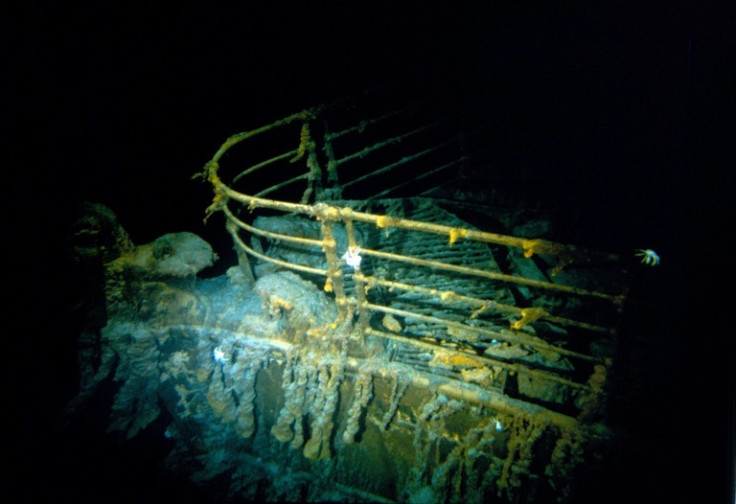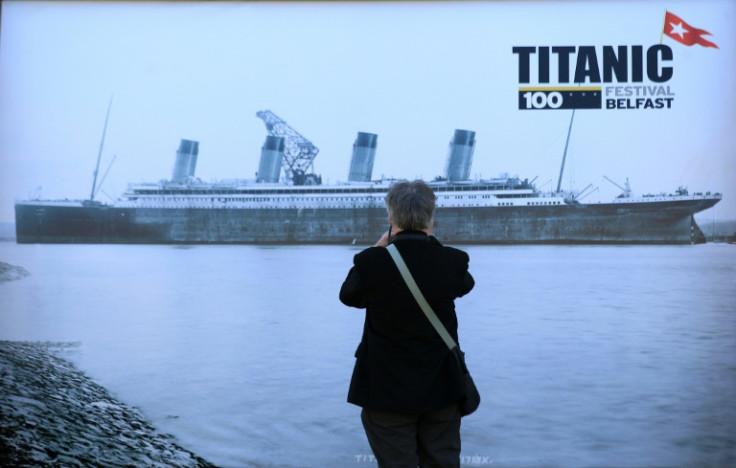The Enduring Allure Of The Titanic

Since it sank on its maiden voyage more than a century ago, the Titanic has had an unshakeable grip on the public imagination.
A monument to the technological progress of its time -- and the hubris of men who thought they had built an unsinkable ship -- one of the world's deadliest ocean disasters has inspired books, blockbuster movies, stage productions and countless adventurers who want to see what happened when the luxury liner hit an iceberg.
Among them, the wealthy passengers and crew of a submersible that vanished Sunday in the North Atlantic Ocean on their way to visit the seabed wreck, on a $250,000 ticket.
An all-hands search and rescue operation to find their tiny sub before the oxygen runs out was playing out Wednesday as the world watched and waited.
RMS Titanic set sail on its maiden voyage in April 1912 from Southampton, England bound for New York.
At the time, it was the largest ship ever built, a vast floating palace of luxury, where first-class passengers had the run of a gymnasium, squash court, swimming pool and top-notch dining options, or could retire to their lavish cabins where a staff of hundreds waited on their every whim.
Below decks, poor migrants were crammed into steerage quarters, desperate to get to the promise of the New World.
Late on April 14, the Titanic -- carrying 2,224 passengers and crew -- hit an iceberg, denting and buckling the hull and allowing water to rush in.
As compartments flooded, the 269-meter (883-foot) vessel began sinking, bow first.
There were not enough lifeboats for everyone on board, and the harried crew did not know how to deploy them; some were dispatched just half full.
Overwhelmingly, those who made it onto the lifeboats were women and children, with men instructed to hang back.
Hours after she began tipping up, the huge ship snapped in two, and plunged into the depths.
Passengers who had not made it into the limited number of lifeboats perished within minutes in the freezing water.
Around 1,500 people died in the disaster. Just 700 were picked up by RMS Carpathia, a transatlantic steamship that had answered the Titanic's distress calls.
The exact location of the wreck remained a mystery for 70 years until a Franco-American expedition discovered where it lay, 3,700 meters below the waves.
Footage from the ocean bed shows the two halves of the ship surrounded by a huge debris field -- furniture, shoes, plates and other detritus ejected from the vessel as it sank.
In the years since it was rediscovered, the wreck has been visited by researchers, explorers, tourists and filmmakers.
One of its most famous visitors was director James Cameron, whose 1997 smash "Titanic" starred Leonardo DiCaprio and Kate Winslet as passengers who fall in love.
The movie is known as much for Celine Dion's hit "My Heart Will Go On" as for a scene in which DiCaprio's character, Jack, rescues Winslet's Rose by pushing her aboard a floating door, sacrificing himself in the process.
Such is the film's enduring popularity, even a quarter century later debates and theories continue to swirl around whether there was actually room enough for Jack on the makeshift raft.
It is just one example of how the story of the Titanic "never seems to end for people," Cameron told a press conference held for the 25th anniversary re-release earlier this year.
"The Titanic has this kind of enduring, almost mythic, novelistic quality. And it has to do with, I think, love and sacrifice and mortality," he said.
"The men who stepped back from the lifeboats so that the women and the children could survive."
While for many the Titanic is a historical curiosity -- as distant from today as the Parthenon or Pompeii -- for descendents of those who perished there is something distasteful about ultra-wealthy tourists spending heavily to visit the wreck.
"I think it's disgusting, quite honestly," 69-year-old John Locascio, whose two uncles died in the tragedy, told The Daily Beast.
"They died a horribly tragic death. Just leave the bodies resting," Locascio added. "They don't want people down to see them. Just leave well enough alone."
Auctions of Titanic memorabilia and artifacts remain popular, with an embroidered pink coat Winslet wore in filming the 1997 movie and a letter written by a Uruguayan passenger who died in the disaster both going under the hammer next week in separate sales.
The violin used by bandleader Wallace Hartley to play hymns on deck as the great ship went down -- a reminder of the Titanic's final moments -- sold in 2013 for $1.7 million.



© Copyright AFP 2024. All rights reserved.





















